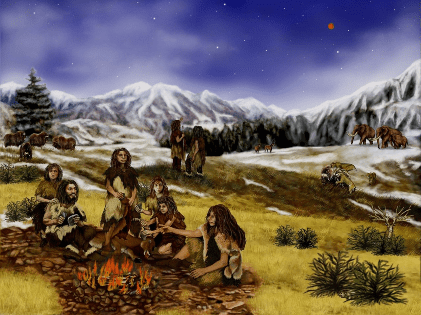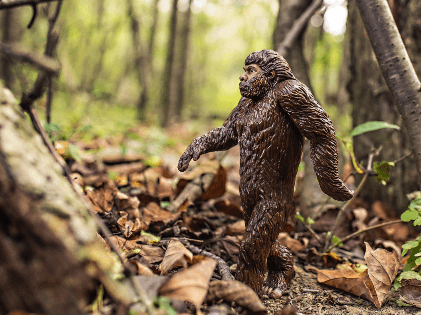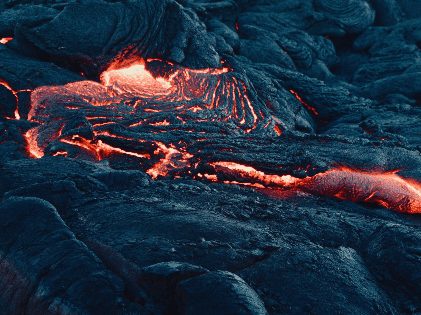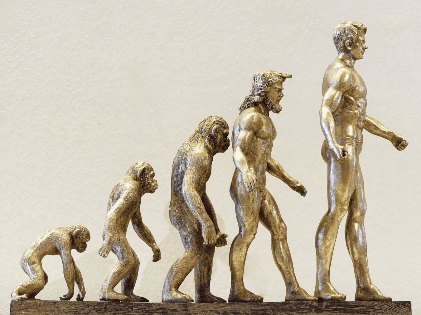 The tangled tale of human evolution has always been fascinating and is full of mysteries. The series of unanswered questions bring us back to about 200-150,000 years ago when most scientists believed Homo sapiens were starting to evolve. But the story of early human ancestors stretches back much further than we can imagine. The enthralling facts regarding human evolution will surely keep you hooked to this article.
The tangled tale of human evolution has always been fascinating and is full of mysteries. The series of unanswered questions bring us back to about 200-150,000 years ago when most scientists believed Homo sapiens were starting to evolve. But the story of early human ancestors stretches back much further than we can imagine. The enthralling facts regarding human evolution will surely keep you hooked to this article.
Our Ancestors Left Africa More than 1 Million Years Ago
Homo erectus, our ancient ancestors, took the same route out of the African continent that Homo sapiens or our forefathers had taken about 80,000 years ago. There is a high possibility that Homo Sapiens were not alone when they left Africa. Beyond Africa’s border, they surely encountered other look-a-like humans who used to roam around Eurasia at that time.
Are You A Neanderthal? Well, You Could Be
 You may be a part of the Neanderthal community. Who knows. Recent studies found that the Neanderthal population, who mostly used to be an African origin, made its way into the non-African population.
You may be a part of the Neanderthal community. Who knows. Recent studies found that the Neanderthal population, who mostly used to be an African origin, made its way into the non-African population.
When Cro-Magnon invaded the Eurasia region, they probably encountered this Neanderthal community and had their children with them. So you never know what could be your origin. Fascinating, isn’t it?
Our Forefathers Stood Tall In The Face of Natural Adversities
 The evolution of humans wasn’t all rosy. Our forefathers indeed were used to being some tough nuts to crack. And because of this reason, they survived in the face of some destructive natural adversities. Something similar happened almost 80 thousand years ago when a massive part of the human population crashed all of a sudden.
The evolution of humans wasn’t all rosy. Our forefathers indeed were used to being some tough nuts to crack. And because of this reason, they survived in the face of some destructive natural adversities. Something similar happened almost 80 thousand years ago when a massive part of the human population crashed all of a sudden.
According to scientists, an apocalyptic disaster took place in the world at that time. The Toba volcano erupted, and it created a global ecological disaster. The ash cloud draped around the planet and destroyed a massive amount of vegetation across the globe. And this was enough to descend the human population, and they shrank by a large proportion. Imagine what the humans had gone through once.
Humans Unbelievably Crossed The Pacific Ocean In Boats
 It may sound impossible to you, but yes, it happened many moons ago, say about fifty thousand years. From Africa’s coast to Australia, the prehistoric Homo sapiens crossed the distant miles of the rumbling Pacific Sea in small boats. We can’t even think about this deadly adventure. But yes, they thought and did it by themselves.
It may sound impossible to you, but yes, it happened many moons ago, say about fifty thousand years. From Africa’s coast to Australia, the prehistoric Homo sapiens crossed the distant miles of the rumbling Pacific Sea in small boats. We can’t even think about this deadly adventure. But yes, they thought and did it by themselves.
About 50000 years ago, they reached the shore of Australia, thanks to their flaky boats that made the impossible possible. We don’t know much about the boats, but surely we can get a hint of their willpower.
Firing All Gun Blazing

The discovery of fire and knowing how to control it was one of the biggest turnarounds of human civilization. Earlier prehistoric humans were scared of it. But when they started taming the fire, the world came to their feet. This leads the way to make deadly weapons against gigantic prehistoric predators and other tools to move forward. But it didn’t happen overnight.
What initially used to be an object of fear, gradually became one of the biggest strengths. The curious minds of us humans always want to be better in several ways. Inventing fire was the part of that notion only.
We Are Still Evolving
 Homo Sapiens are evolving too rapidly. So, it’s safe to assume that our predecessors will be a lot different from us one day. Not only will they be technically advanced, but their appearances have changed too. Thousands of years later, they might not look-alike to what we see in the mirror.
Homo Sapiens are evolving too rapidly. So, it’s safe to assume that our predecessors will be a lot different from us one day. Not only will they be technically advanced, but their appearances have changed too. Thousands of years later, they might not look-alike to what we see in the mirror.
Everything from organs to the brain has evolved. Yes, the size, its functionality, and a lot of other aspects have evolved significantly. This biological evolution has slowly been happening ever since our race species entered the world. You’ll be fascinated to hear that our brain size is shrinking as well. So, we might have to install machines or artificial intelligence to make our livings in the future.
Thousands of years after we look back, human evolution will still be a topic to ponder upon. The long anthropological debate might not end at all. It will continue to haunt us for a long way to come.




